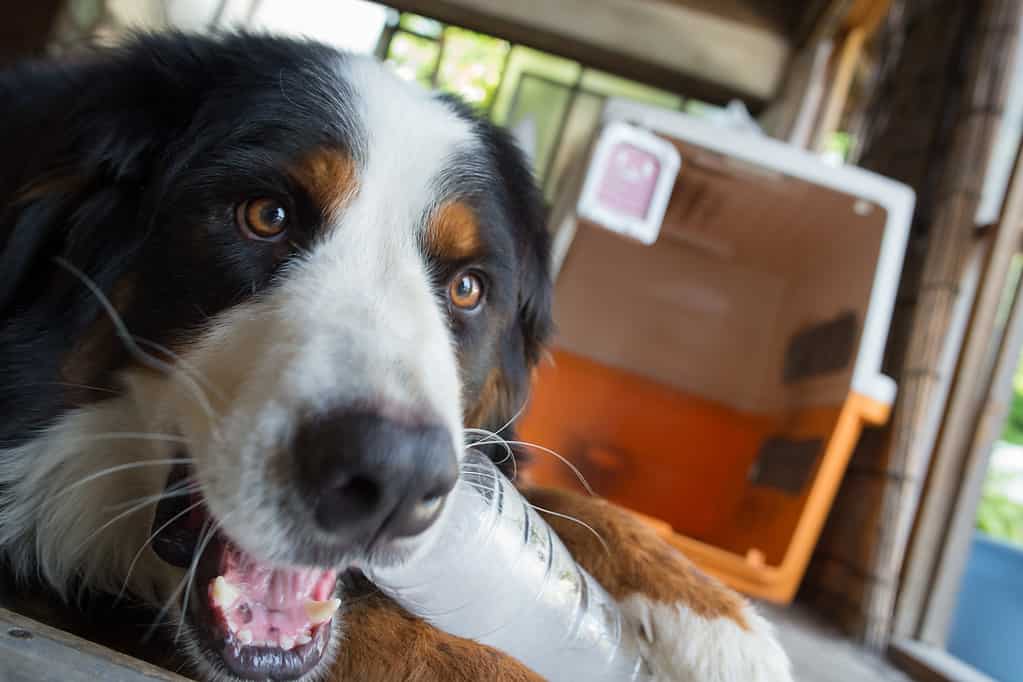Bernese Mountain Dog guardians often share the same common complaints about their gentle giants. Like every type of dog, this breed isn’t for everyone!
Bernese Mountain Dogs are large, expensive dogs prone to health issues and live just 7-10 years on average. They shed and drool plentifully, require regular grooming, and can be destructive–especially in the puppy years.
That’s right–puppy years! Bernese Mountain Dogs mature slowly, often not reaching their full size or maturity until two to three years old. This means they retain their puppy energy much longer than smaller dog breeds.
This article will discuss 16 common complaints about Bernese Mountain Dogs, ways to make living with them easier, and whether this breed is right for you.
Are Bernese Mountain Dogs Good Pets?
Bernese Mountain Dogs make good pets for people who can care for a giant dog and all that comes with them, including difficult handling, higher food costs, and shortened lifespans. These dogs do best with families who are home most of the day and have plenty of time to spend with them.
If you don’t like a dog that’s clingy, messy, or short-lived, Bernese Mountain Dogs aren’t for you. They’re prone to separation anxiety, shed and drool heavily, and only live an average of 7-10 years.
Berners also stay immature puppies for longer than smaller dog breeds. You should be prepared to deal with all of the typical puppy behaviors–chewing, jumping, testing the boundaries–in a rapidly growing puppy as big as a large-breed adult dog.
Some people are better off adopting an adult rescue who’s a few years old or older, as this allows you to skip the puppy years that can be most challenging behaviorally. Others would be better off adopting a smaller dog breed or a different pet altogether.
17 Common Complaints About Bernese Mountain Dogs
1: They’re Large Dogs
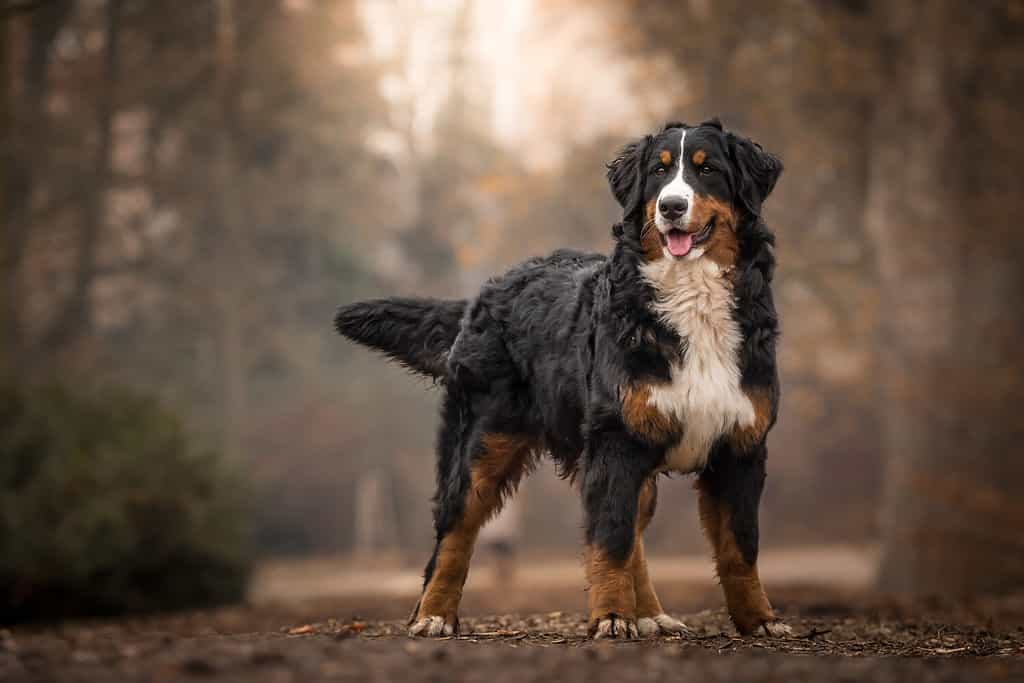
These dogs can weigh up to 115 pounds.
©xkunclova/Shutterstock.com
Bernese Mountain Dogs take up a lot of space in your home, car, and heart. They can be annoying when they want to stretch out on the couch or bed, taking up more than their fair share!
Males weigh up to 115 pounds, females up to 95. If you cannot hold a dog of this size back when pulling on a leash, you shouldn’t adopt them–even with well-trained dogs, things can happen!
It’s also worth considering whether you can carry your dog in an emergency or if they suffer from joint issues late in life. Joint problems are very common in giant breeds like Bernese Mountain Dogs.
Giant breeds are also the most expensive to feed. Everything you buy, from their harness to medications at the vet, will also cost more. You’ll likely always be purchasing the largest size.
Having a dog of this size also has its benefits. They give good cuddles–so long as they aren’t lying on your chest! Their size will likely be enough to deter burglars, and they’re much sturdier than small dogs that can be easy to trip on.
2: They Mature Slowly
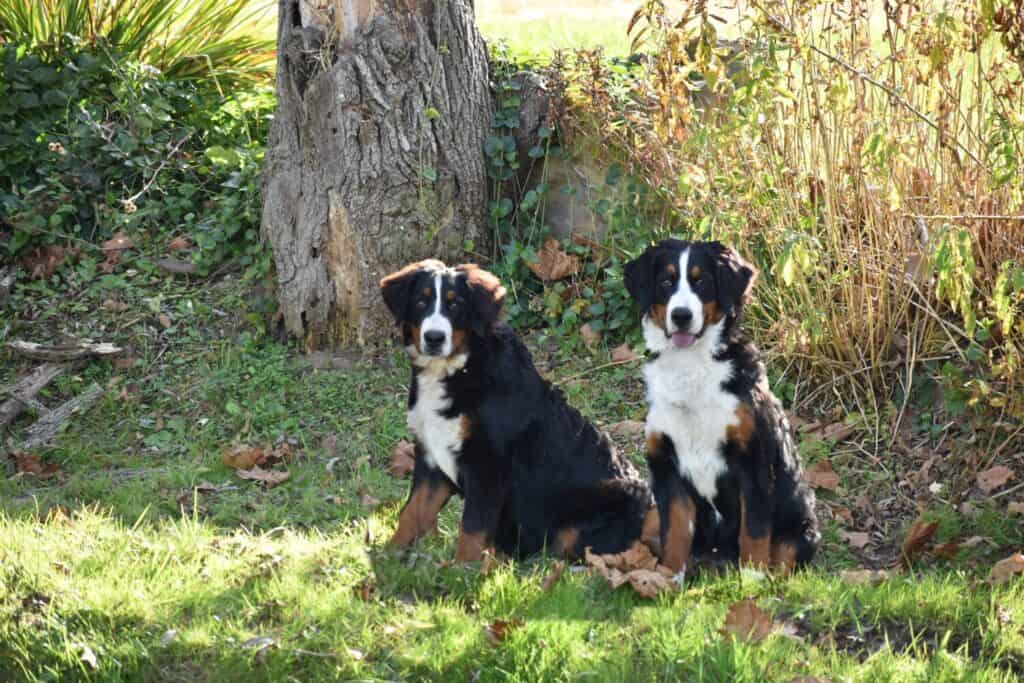
Bernese Mountain Dogs are considered fully grown at two to three years old.
©SShank/Shutterstock.com
It might feel like your Berner will never grow up in the first few years. This is because they mature more slowly than smaller dog breeds. Your Bernese Mountain Dog is still considered a puppy until they’re two to three years old.
This will come with classic puppy behaviors such as inappropriate chewing, excitement that can cause them to jump up on or bump into people, and rebellion during adolescence. Your Berner will be much larger than other puppies their age and can get into more mischief.
You’ll need to puppy-proof your home well early on, keeping in mind that a Bernese Mountain Dog puppy will soon be able to reach countertops and other high surfaces easily.
Early training and socialization is also necessary, as is accepting what your dog can and cannot do in their current developmental stage.
3: Bernese Mountain Dogs Have Short Lifespans
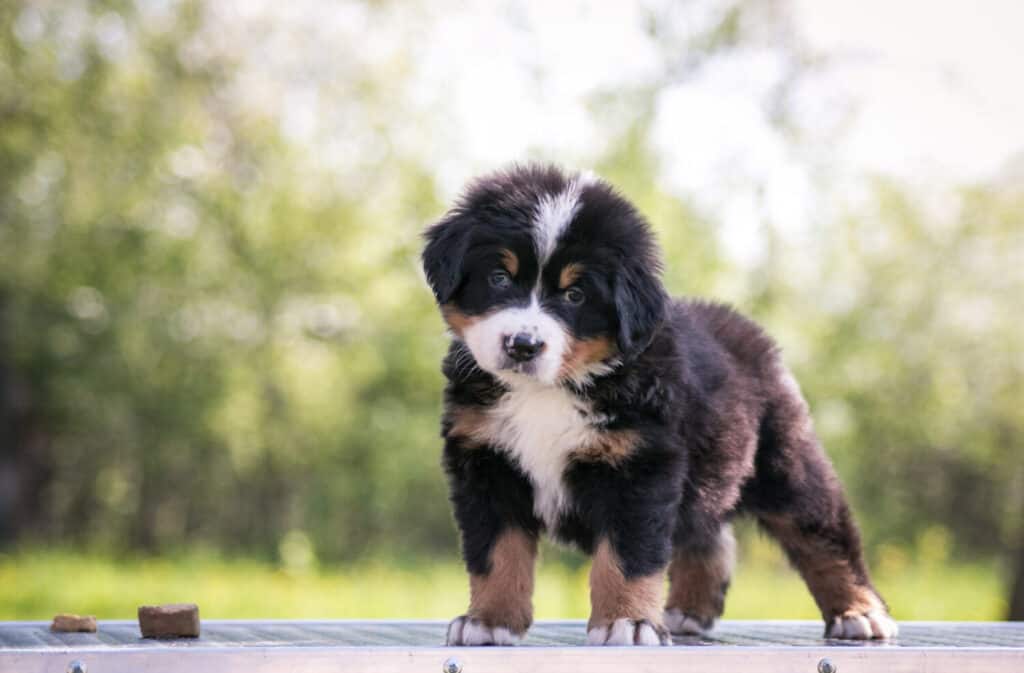
The average lifespan for a Bernese Mountain Dog is 7-10 years.
©Eve Photography/Shutterstock.com
Unfortunately, being slow to mature doesn’t mean Bernese Mountain Dogs age slowly. Most die at just 7-10 years of age.
The leading causes of death for Bernese Mountain Dogs are cancer, joint conditions, and bloat (GDV). Regular vet trips help keep your dog healthy and potentially allow them to live longer. Diet and exercise are also huge factors when it comes to lifespan.
Providing quality, veterinarian-recommended dog food is ideal, as is feeding it in the right amounts and limiting treats. Overweight Berners will typically live shorter lives than those of a healthy weight.
4: They’re Expensive

Due to their size, they cost more than most dog breeds.
©Singkham/Shutterstock.com
As discussed above, food and other supplies for your Berner will cost more than you’d pay for a smaller breed. However, there are also additional costs to consider.
In puppyhood, many Bernese Mountain Dogs damage expensive items like clothing, furniture, or even walls. They’re also likely to destroy many chew toys.
These items can cost a lot to replace. However, putting in some extra time and effort can prevent you from paying much of these costs.
Puppy-proof your home well. Use management strategies such as a dog exercise pen for when you cannot supervise them and baby gates to block off rooms that can’t be fully puppy-proofed.
Lastly, pet insurance and veterinary bills are often the biggest expense for any dog. Bernese Mountain Dogs are prone to various health problems that can cost hundreds or thousands of dollars to treat.
5: They Can be Destructive
As discussed above, puppy-proofing your home is vital to keeping your dog and possessions safe.
Bernese Mountain Dogs can be very destructive as puppies. Adult dogs may also have problems without proper training, daily exercise, and mental enrichment.
You might pay the price if you don’t have the time to care for your dog well. Anxious and bored dogs often chew inappropriately.
6: They Need Daily Exercise
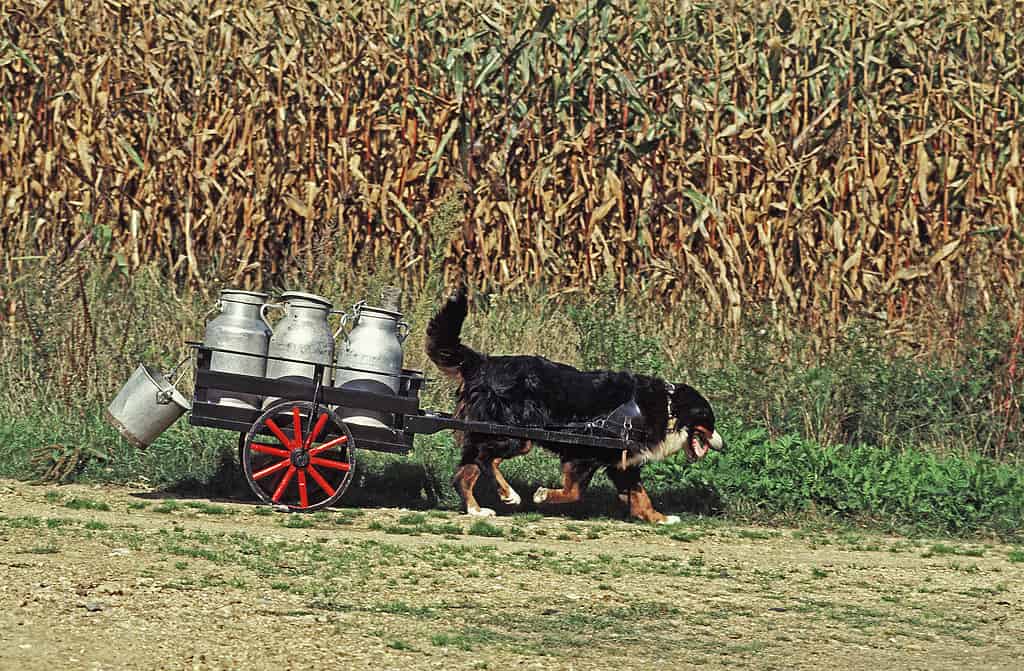
They need daily exercise and mental enrichment to stay healthy.
©iStock.com/slowmotiongli
Luckily, Bernese Mountain Dogs don’t have high exercise needs. They’re a good choice for people who want to exercise their dog for around 30 minutes a day.
They can also adapt to higher activity levels and make great hiking or jogging companions.
The problem arises when you cannot provide daily exercise or if you don’t stick to a consistent routine. This can cause behavioral and health issues.
7: They Shed Copiously
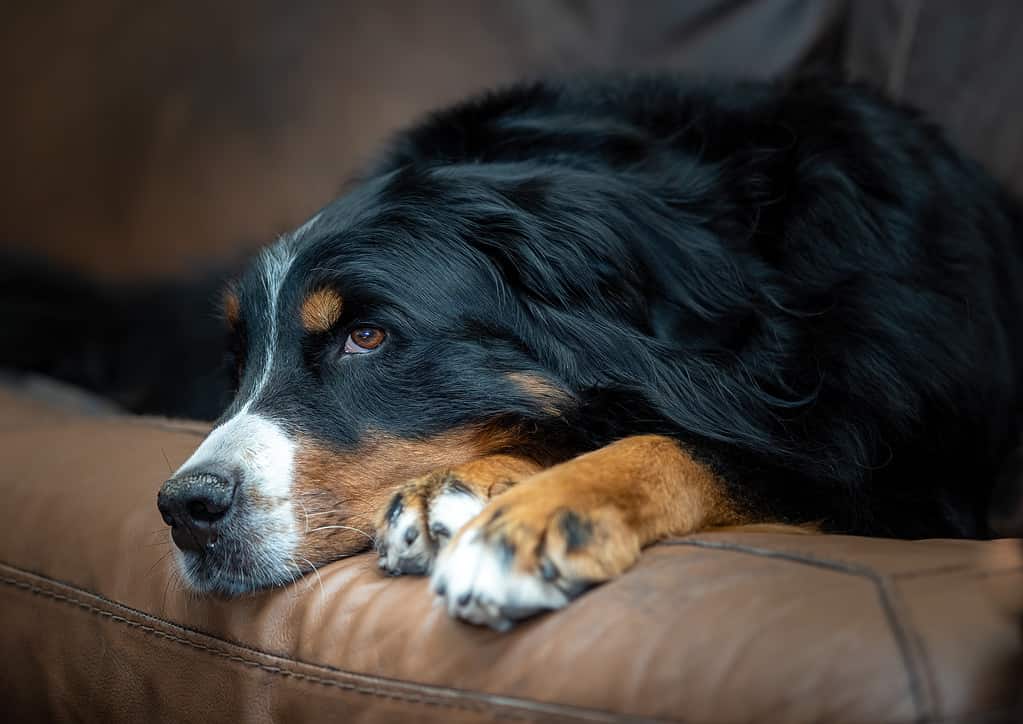
You’ll find their fur on the furniture, carpets, and more!
©Matt_Collingwood/iStock via Getty Images
If you’re looking for a non-shedding breed, you don’t want a Bernese Mountain Dog. These pups shed profusely.
Brushing your dog and vacuuming your home regularly will reduce the volume of fur you find around the house. You might also want to buy a reusable lint roller for your clothing and furniture.
8: Their Coats Need to be Brushed Regularly
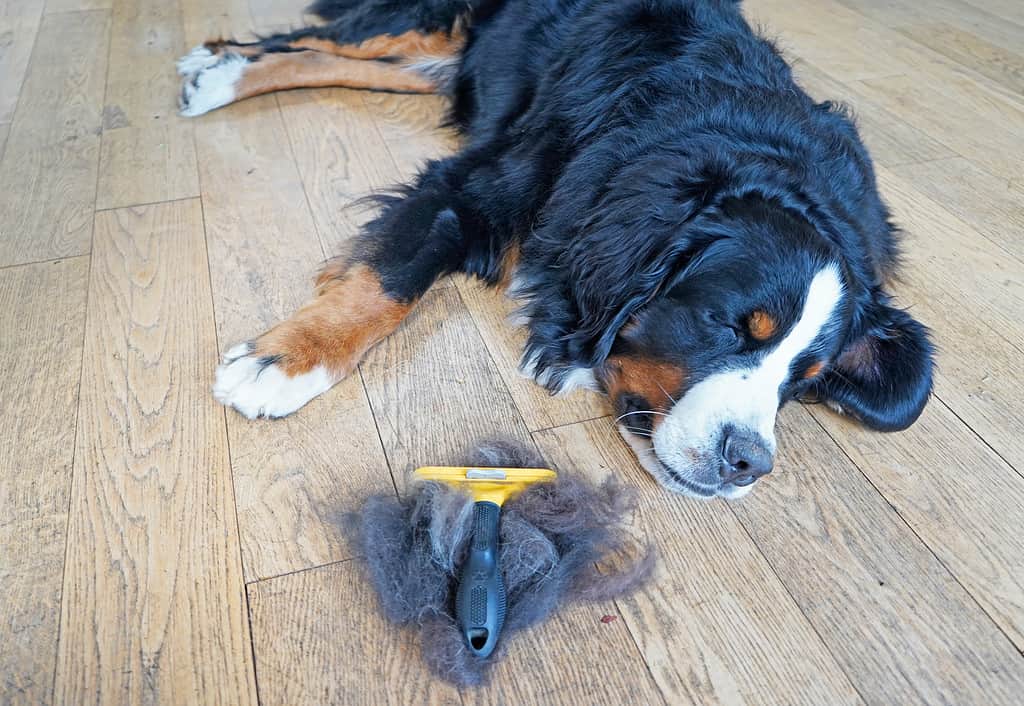
They need to be brushed at least once a week.
©Kriste Sorokaite/iStock via Getty Images
Berners should be brushed weekly throughout the year and daily during the shedding season in spring and autumn when their coats shed more heavily. Failing to brush their coats regularly can lead to painful mats in the fur.
Mats pull on a dog’s skin constantly, especially if they develop near joints where the skin needs to flex. Pay special attention to your dog’s ears, armpits, rear, and chest, as these are the most common areas for mats to develop.
If you find mats in the fur, gently remove them with scissors. Heavy matting must be handled by a professional, such as a veterinarian or dog groomer, for your dog’s safety.
9: Bernese Mountain Dogs are Prone to Heat Stroke
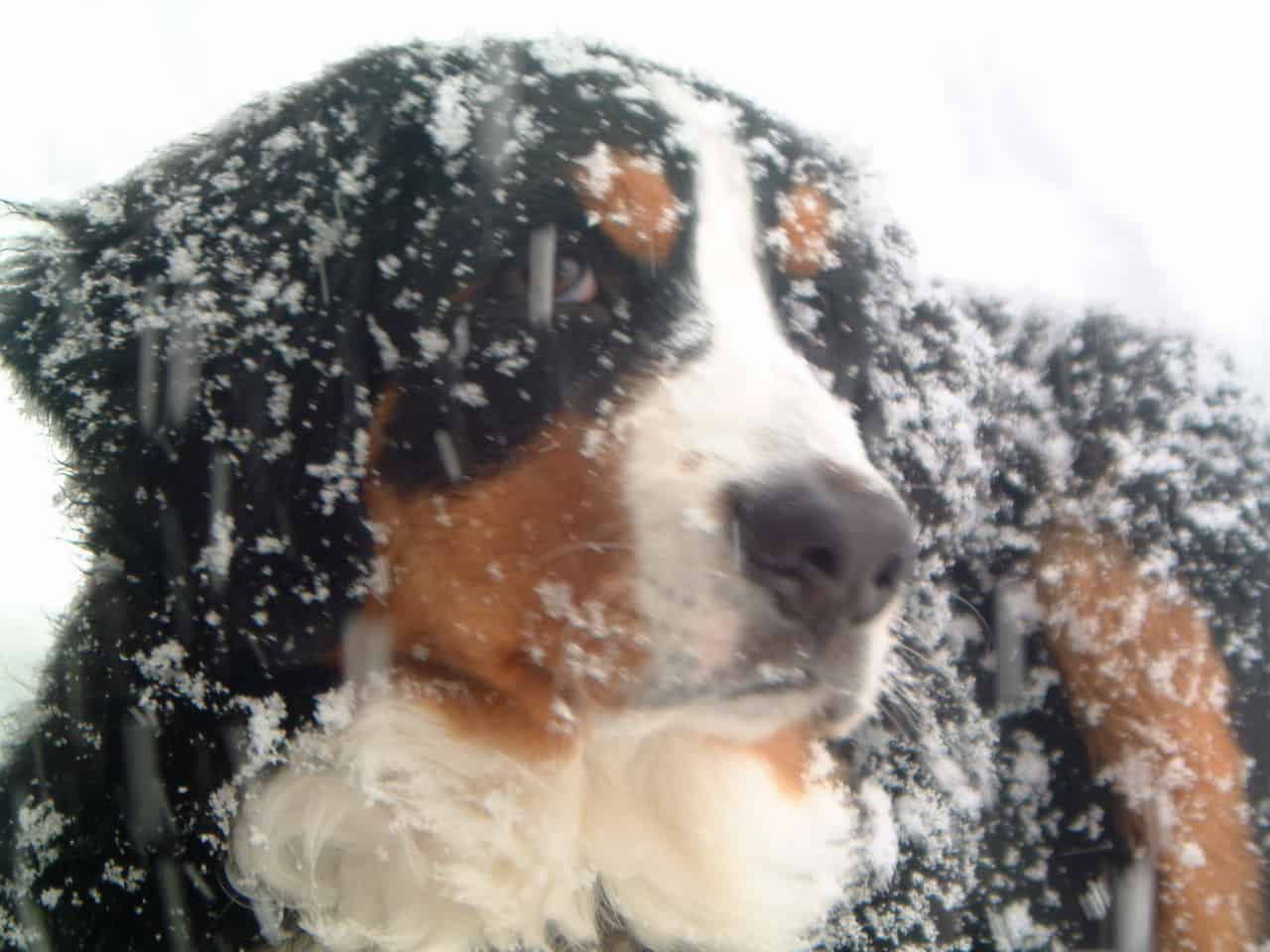
Bernese Mountain Dogs greatly prefer the snow to the heat.
©Hide-sp, CC BY-SA 2.5, via Wikimedia Commons – Original / License
Their large size and thick coats make Berners more prone to heat stroke than other dog breeds. They tend to enjoy cold weather and can be miserable in hot climates.
It can be difficult to exercise a Bernese Mountain Dog inside, so you might have to get up early in the morning or stay up late to take them for walks when the summer temperatures are at their lowest.
Know the signs of heat stroke and be prepared to bring your dog to an emergency vet clinic immediately, should it occur.
10: They Drool Heavily
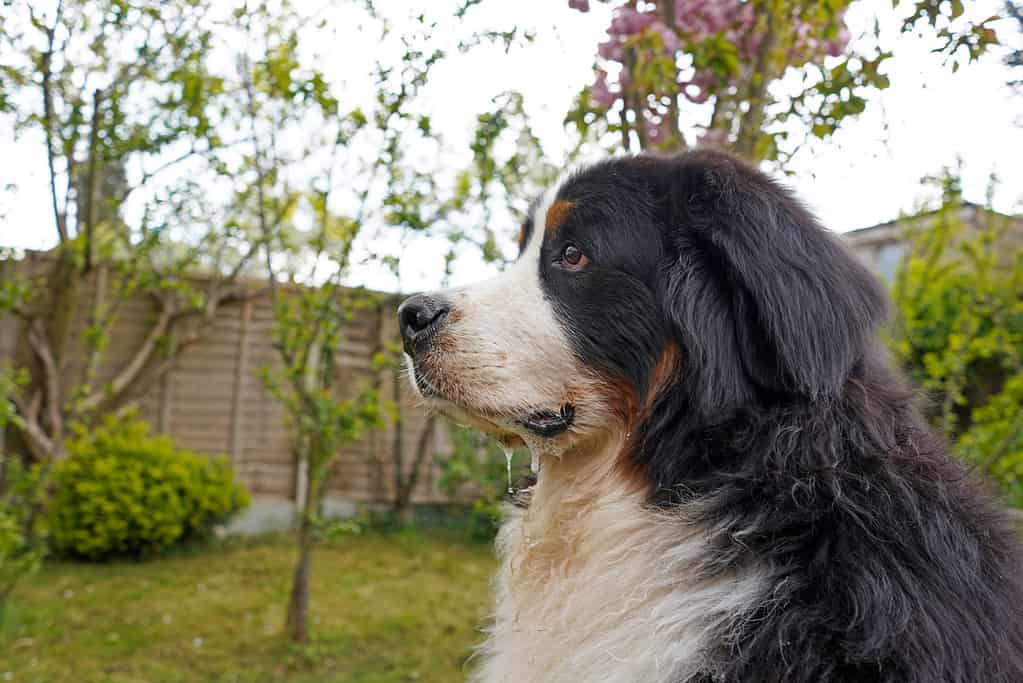
Berners drool a ton!
©Kriste Sorokaite/iStock via Getty Images
Their fur isn’t the only way your Berner will likely make a mess. You’ll also find drool puddles around the house, especially where they sleep, eat, and drink. You might also need to wipe their face regularly to keep them clean.
11: They Tend to be Clingy
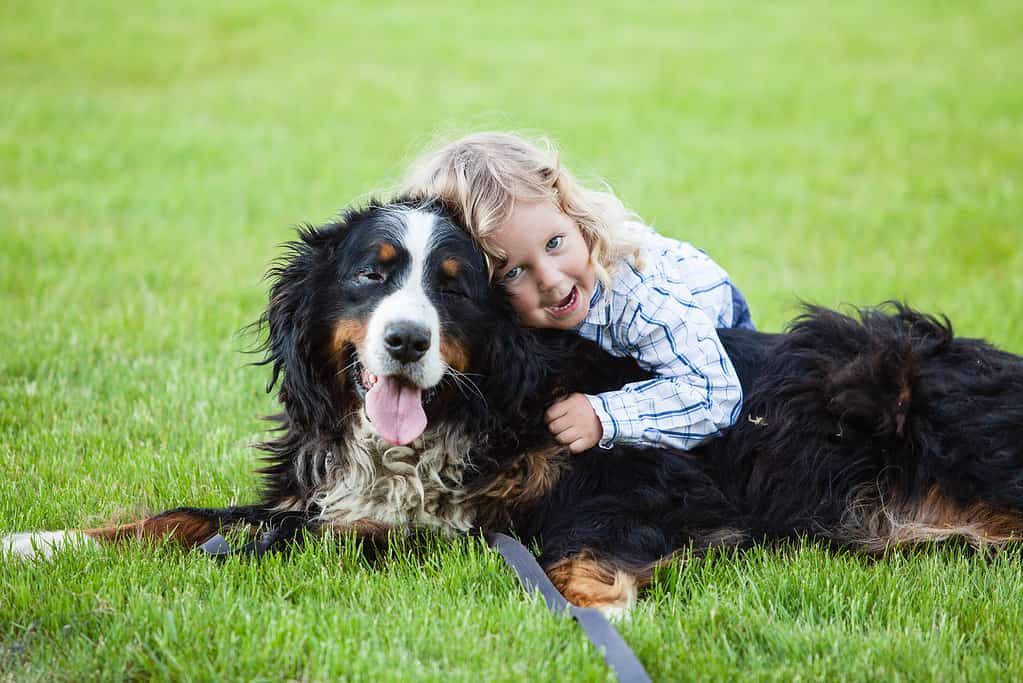
Berners tend to cling to their people.
©iStock.com/Murchundra
If you like a clingy pup, this is the breed for you! For those who grow aggravated at having a dog attached to their hip, Berners likely aren’t the right fit.
They also aren’t good dogs for people who spend a lot of time out of the house, such as those who work full-time and don’t have family to care for their dog. They do best in families, with people working from home or retired people.
12: They’re Prone to Separation Anxiety
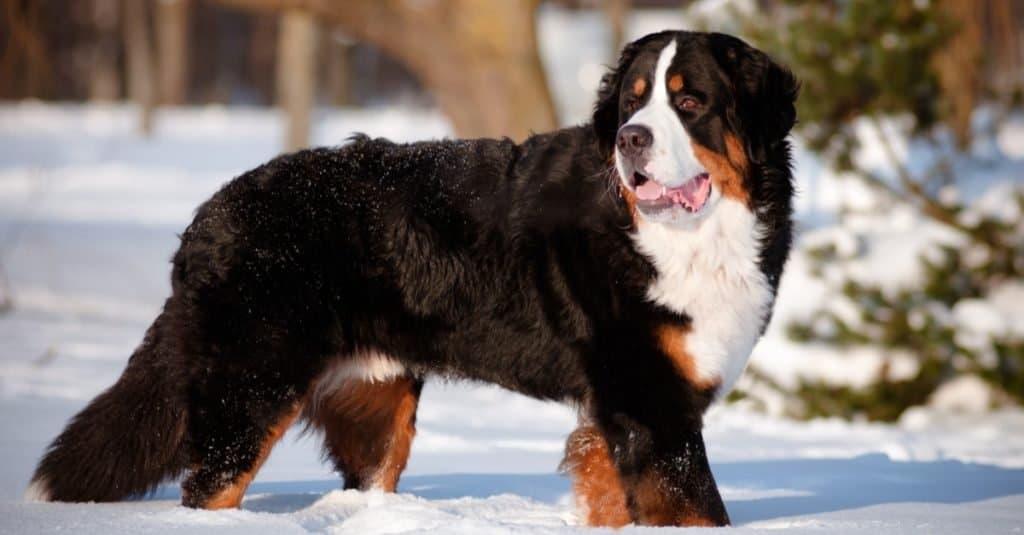
They don’t like being left alone.
©otsphoto/Shutterstock.com
Bernese Mountain Dogs are also prone to separation anxiety when they get highly anxious when left alone. Some dogs with separation anxiety cannot tolerate even minutes on their own.
This is a struggle for the dogs and their people alike and can be difficult to resolve. You should teach your Bernese Mountain Dog how to handle being alone as a puppy by introducing the concept slowly and giving them positive experiences like chewing a toy while you briefly step out of the room.
Limiting their alone time is also important, as leaving them for longer than they can handle makes them more at risk of developing separation anxiety.
13: Bernese Mountain Dogs are Sensitive

They’re sensitive dogs that do best in peaceful homes.
©Dora Zett/Shutterstock.com
These dogs pick up on the moods of those around them and are very sensitive to any turmoil in the home. They’re also sensitive to poor training; aversive methods can harm a Bernese Mountain Dog.
Keep their environment positive when possible. Have patience with your pup, and always use force-free training methods.
14: Many Berners are Overly-Friendly
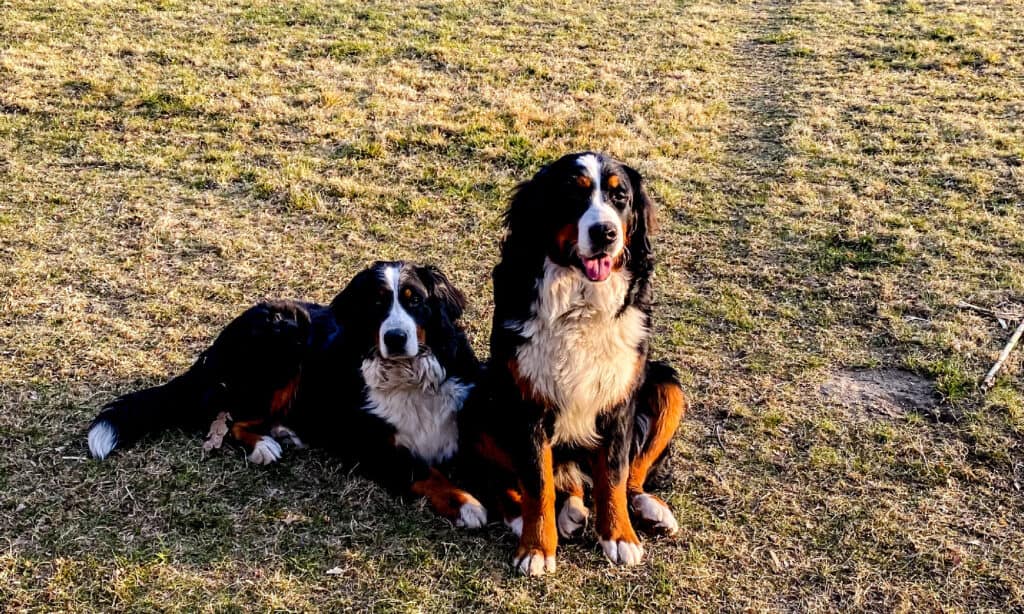
They can be overbearing at times.
©iStock.com/Marketa Vydrova
Some Bernese Mountain Dogs are shy with strangers, but it’s not considered ideal according to breed standards. It’s more likely that your well-bred Berner will be amiable toward strangers!
This can be a challenge if they try to lunge on their leash to get to people they want to greet, who may or may not want to say hi back! It can also be annoying for some introverts to have an incredibly social dog.
15: They Don’t Make Good Guard Dogs
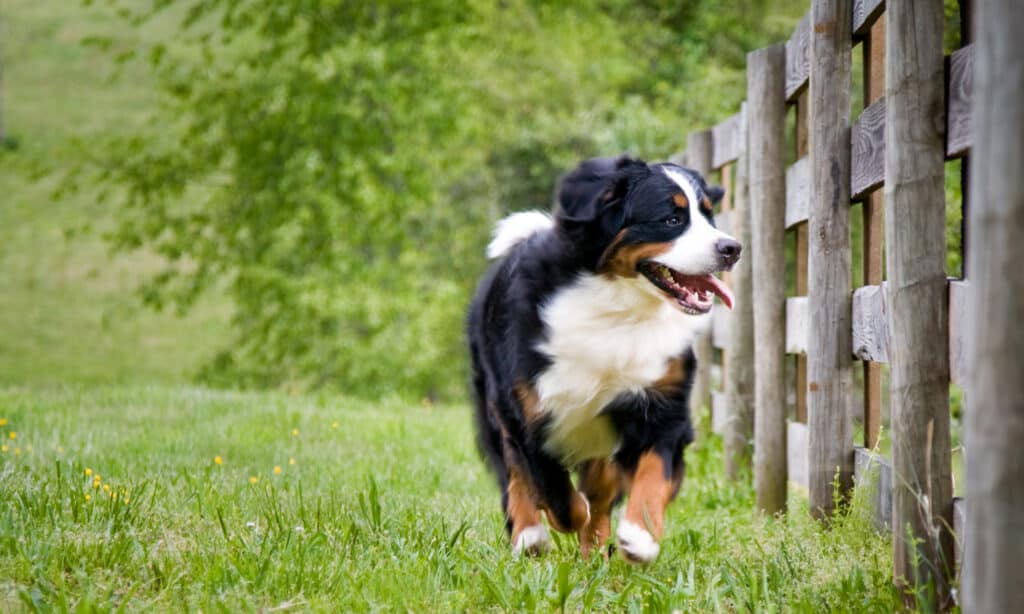
Your Bernese Mountain Dog is unlikely to guard.
©vahamrick/Shutterstock.com
Most importantly, you shouldn’t expect an excellent guard dog when adopting a Bernese Mountain Dog. They might cover an intruder in doggy kisses!
They make good deterrents due to their size, making it unlikely that they’ll need to protect anyone. Most people aren’t going to mess with a 90+ pound dog!
16: They’re Prone to Genetic Health Problems

Bernese Mountain Dogs are predisposed to several health issues.
©iStock.com/LightFieldStudios
Lastly, Bernese Mountain Dogs are prone to a few genetic health problems. This is true of any breed, but Berner’s health problems tend to lead to a short lifespan.
Here are some common health problems you might see in your Bernese Mountain Dog:
- Neoplasia is a common cause of cancer in Bernese Mountain Dogs and also the leading cause of death in the breed.
- The larger the dog, the higher their risk of joint problems. This is the second leading cause of death in Bernese Mountain Dogs due to their giant size. Some ways to help prevent issues such as hip dysplasia include genetic health screening before breeding, not overexercising growing puppies, and limiting puppies’ jumping. However, there’s still no guarantee.
- Giant breeds are some of the most at risk for bloat, also known as gastric dilatation-volvulus or GDV. This is an emergent and life-threatening condition, and it’s vital to know the signs so that you can get to an emergency vet quickly should it happen. Prevention strategies include avoiding raised bowls, using slow feeders, and keeping stress levels low (especially around mealtimes). Berners shouldn’t be exercised directly before or after a meal or large drink of water.
- Bernese Mountain Dogs are also prone to other health problems such as cataracts, hypothyroidism, heart disease, and allergies.
Overall, Bernese Mountain Dogs are great for people who want a giant breed and spend most of their time at home. You may have complaints about a Bernese Mountain Dog if you don’t like giant breeds, want a dog with a long lifespan, or want a non-shedding dog.
Some breeds you might enjoy more are small dogs like Malteses, long-lived dogs like Chihuahuas, or non-shedding dogs like Poodles. Please research your dog’s breed thoroughly before adopting them to ensure that you can care for all of their needs.
Thank you for reading! If you have feedback on this post, please contact the AZ Animals editorial team.
The photo featured at the top of this post is © xkunclova/Shutterstock.com
Ready to discover the top 10 cutest dog breeds in the entire world?
How about the fastest dogs, the largest dogs and those that are -- quite frankly -- just the kindest dogs on the planet? Each day, AZ Animals sends out lists just like this to our thousands of email subscribers. And the best part? It's FREE. Join today by entering your email below.
Thank you for reading! Have some feedback for us? Contact the AZ Animals editorial team.




